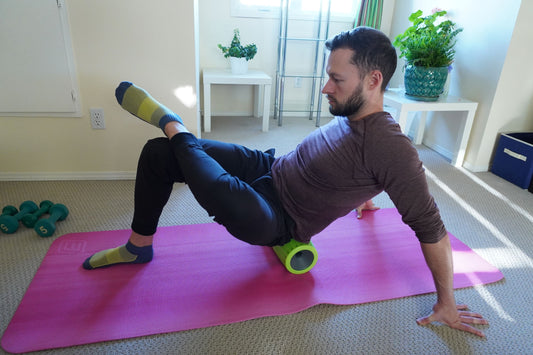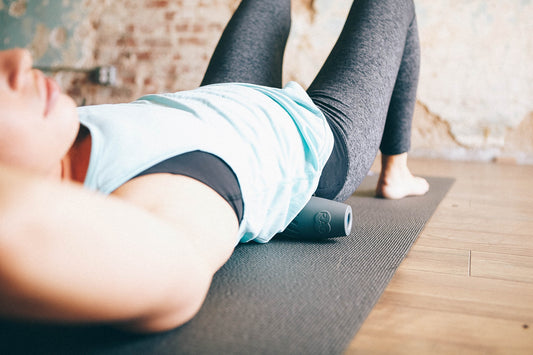Written By: Roy Choquette CSCS, CES
Do you experience stress in your daily life? Duh, right? Hopefully, that stress is managed in a way that allows you to balance your work day, remain on task, and accomplish the goals you need to be a productive individual, all while remaining positive and even happy. But what about the days we find this to be really challenging? What do you do to decompress and recenter yourself so you return to work or your personal life with renewed physical and mental energy?

I really enjoyed reading this article about the core findings surrounding job-stress recovery. Job-stress recovery has become a more popular topic recently and the research around it is very interesting. Not surprisingly, it’s been found that a lot of people find it difficult to take breaks throughout the day that lead to improved job performance, reduced stress levels, and improved problem-solving and creativity. Keep in mind that one very important factor in our success is psychological detachment from work during nonwork time, which doesn’t only mean not working but also “switching off” for a while and being mentally occupied by other things; this can, of course be done on lunch, before work, after work, etc. In fact, according to the article noted above, “Two recent meta-analyses have identified psychological detachment from work as a strong predictor of favorable mood states and positive well-being.” Furthermore, physical activity seems to have substantial recovery benefits and improved well-being.
Not surprising, right? But does this mean “exercise” like running, cycling, or taking a walk in the park? Sure, but it could also mean anything else you can come up with that keeps you mentally and physically occupied in a positive way. We know this can be tough because, as the article notes, “stressful work makes recovery difficult.” Apparently many folks find it difficult to unwind after having experienced negative events during their day and are less likely to mentally and physically detach because they just don’t have the energy to do so. Does this sound familiar? So what’s a potential answer?

We all like to feel like we have control over our lives, agreed? Well, research has demonstrated that people can take charge and learn recovery practices that help them relax and recover better and faster. More specifically, the article notes that mindfulness activities and exposure to nature tend to have a high potential to undo the negative effects of job stressors. Hmm, you thinking what I’m thinking?
I know you saw this coming but I can’t help it; I not only believe in the powerful practice of Self-Myofascial Release (SMR) because I literally feel the everyday differences it makes in my personal and professional life, but we also have tons of research and evidence-based practices that support it. If you or someone you know is not yet a believer I would like to challenge you or them to try it out before making any assumptions. As the article notes, people are encouraged to explore different physical and psychological activities in order to find out what works best for them. I know it won’t take long at all to feel the benefits and how much SMR helps us make a powerful mind-body connection and reduces heart rate, blood pressure, and overall stress. There is so little to lose for trying it out and so much to gain.

If you’re already a believer and just unsure how to incorporate this into your day, I have a few suggestions:
- Take a look at some How-To videos to help guide you through the process, easy-to-do techniques, and landmarking locations for the upper and lower body. These are follow-along videos so you’ll be active the whole time. These could be great for clients and patients as well.
- “…people may want to develop recovery routines…that help them to recover from work (and other demands).” Align SMR with a morning, afternoon, and/or evening routine you already have in place, like brushing your teeth. This way you’re more likely to remember to do this powerful self-care practice.
- “Employees working in less demanding and more resourceful jobs enjoy better recovery experiences.” Let us know if you’d like to explore having some RAD tools readily available for employees so they can take even 5 minutes here and there to hit the reset button so they can return to work and feel more energetic (mentally and physically) and more likely to feel happy with their employer and overall job-related activities.



















